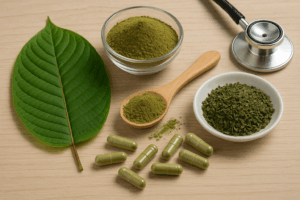Every parent wants to know the risk for substance use in their family, especially if someone close to the family (or in it) has used illicit drugs, or currently does use them. Unfortunately, the answer isn’t a simple yes or no. While it stands to reason that those who are around drugs are more likely to use them in the future, this isn’t always the case.
For example, based on data from the combined 2009 to 2014 National Surveys on Drug Use and Health, about 1 in 8 children aged 17 or younger lived in households with at least one parent who had a past year substance use disorder. A substance use disorder in this context is characterized by recurrent use of alcohol and/or other drugs that results in significant impairment.
On that same line, the Centers for Disease Control and Prevention found that kids are more likely to drink alcohol when they’re underaged if their parents partake in it too. At least 19% of individuals between 12 to 20 years old drink alcohol regularly, but due to underreporting the figure is most likely much higher
This does mean that children in such households are at increased risk for child maltreatment and child welfare involvement compared with other children. In addition, these children are at an increased risk for engaging in substance use themselves.
However, does that not mean all children have the same risks. While still a concern, 19% is a far cry from 100%, after all.
Is Your Family At Risk for a Substance Use Disorder?
If you have someone in your family that has a substance use disorder or partakes in drugs and/or alcohol, it does not mean your family is at an immediate risk. There are numerous steps you can take to keep your family safe.
Prevention and intervention efforts, especially those that target children and teenagers, are beneficial at reducing the risk to your family. However, you must understand all of the risk factors before we talk about prevention methods.
Risk factors include:
- Proximity to illicit drugs
- Transitions in life (divorce, moving, changing schools, job loss)
- Stress
- Pain management/prescription pills
- Socioeconomic status
- Mental illness
As you can see, proximity is only one of the common risk factors, but it’s not the only one. It’s also important to understand that everyone has these risk factors in their life at some point. Not everyone will turn to illicit substances to help them cope.
One of these may not be an immediate cause of alarm, but if two or more are present, then you should consider taking a proactive approach.
Proactive Prevention and Intervention for Children
Every age group has different prevention methods that work for them. When it comes to children and teens, the National Institute of Drug Use outlined the following preventative methods:
Infancy and Toddlerhood: Parents who are highly responsive to their infant set the stage for strong parent-child attachment.
Preschool: Increasing behavioral control in the preschool years improves social competence across the transition to elementary school.
Transition to School: School readiness supports mastery of basic concepts during kindergarten, setting the stage for academic success throughout the school years.
Internal factors: Intelligence and easy temperament both reduce the risk of substance use disorder naturally. Other factors include a healthy sleep schedule and good eating habits. All of these make children less susceptible to stress and help them adapt to harder situations.
External factors: Building a warm relationship between parents and kids that is consistent and involves age-appropriate responsibilities is a huge preventative measure. It allows your child to feel comfortable to talk with you about problems, instead of trying to cope in other ways.
Preventative Measures for Adults
Adults and teenagers who don’t have a good relationship with their family are more likely to develop bad habits as they get older. Providing them with good coping strategies and anti-drug education is effective, but there is no guaranteed way to prevent it; no matter the age group, everyone can be at risk during their life.
However, adults who have a manageable and healthy schedule, and who are able to cope with stress and negative triggers (or who are seeking professional help to do so) are less likely to use drugs.
What Happens If They Do Develop Substance Use Disorder?
If you or a loved one has, or does develop, substance use disorder, it’s not the end of the world. At Direct2Recovery, we understand how scary it can be to notice risk factors or notice an addiction in your family. We are here for you and your whole family during this process — not just the affected individual.
At D2R, we utilize medicine-assisted treatment and counseling in our out-patient clinic. This means your loved one will get the help they deserve while we treat the whole problem — including the risk factors. In those counseling sessions, we can also bring in family members if necessary to work through any triggers that may be present. Like we said, we’re here for you.
Give us a call today. We’re always happy to help.





